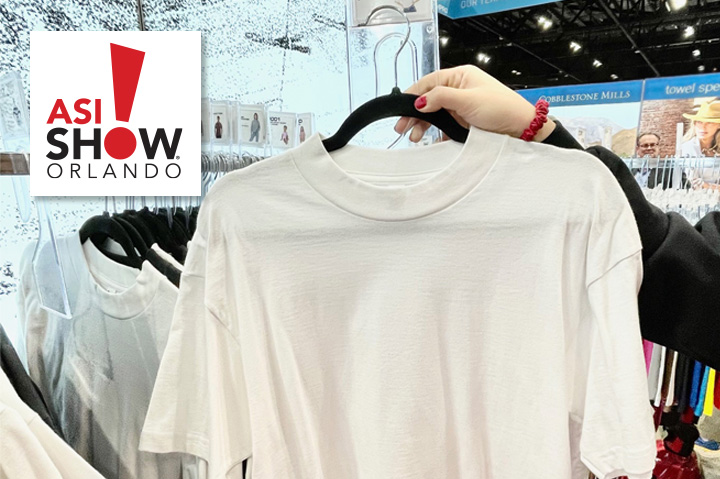News November 28, 2017
Oklahoma Governor Places Prohibition on State Promo Spending
Mary Fallin, the governor of Oklahoma, has issued an executive order that could curb sales of promotional products to certain government entities in the Sooner State.
Signed last week, the order prohibits state-level executive branch agencies, boards, commissions, departments and other entities within the branch from buying “nonessential” branded merchandise for promoting and advertising through June 30, 2018 – the end of the state’s fiscal year.

In subsequent fiscal years, which run from July 1 to June 30, state government executive branch spending on “nonessential” branded items will be allowed, but is prohibited from exceeding $10 million, the governor’s office confirmed to Counselor. Approval for purchases will have to come through a cabinet secretary. The executive order filed last week had the dates for implementing the $10 million fiscal year cap stated differently, but a spokesman for the governor told Counselor that an amendment would likely be filed to reflect that the capped spending provision is scheduled to begin on July 1, 2018.
As written, the order specifically targets ad specialties that include magnets, buttons, bumper stickers, ribbons, awards, prizes, trophies, stationery, writing implements, legal pad holders and book bags, but is not limited to such products, noting that “similar items” are also covered by the directive.
Some promo pros in Oklahoma expressed frustration with the executive order, saying it is likely to have a negative impact on industry sales in their state. “I’m sure a few distributors really took it on the chin with this one,” Bobby Lehew told Counselor. The Oklahoma-based chief content officer for commonsku, a promo industry business management software, said there was likely superfluous state spending on ad specialties that could be eliminated, but added that “to eradicate all from the budget is either a simple political reach for headlines or bureaucratic sloth. We saw this happen with the pharmaceutical industry – a broad sweeping measure disguised as reform – and this will likely continue to make its way to other states.”
A press release from the governor’s office says the clampdown on swag and “unnecessary promotional items” could save cash-strapped Oklahoma up to $58 million annually. Other estimates related lower numbers, including $28.5 million in savings. A bill proposing to prevent government spending on promotional products was previously introduced, but failed to win final legislative approval.
The prohibition on ad specialties is just one component of Gov. Fallin’s broader effort to control spending and course-correct the state’s finances as Oklahoma contends with a budget crisis. “While I have always and will continue to support eliminating waste and inefficiency in state government, I strongly believe that we need to continue these efforts while solving Oklahoma’s structural budget problem,” Fallin said in a statement.
While Executive Order 2017-37 comes down hard on promotional products, it does allow for some exceptions. For instance, the prohibition does not apply to the state’s Tourism and Recreation Department, Department of Commerce or the Oklahoma Department of Career & Technology Education. Also, items used to identify a person as an employee of a state agency or to identify state property are not covered by the prohibition. Products that promote access to services provided by the state or a state contractor are not subject to the order. Furthermore, purchases of promotional products banned under the order could be allowed upon approval of a cabinet secretary. “The intent of the executive order is to provide an additional level of accountability, but the governor wants to provide for reasonable exceptions,” said Michael McNutt, communications director for Gov. Fallin
Already, forward-thinking Sooner State distributors are focusing on how to adapt to the new reality under the executive order. Eric Granata, VP of business development at Oklahoma City-based distributor ROBYN (asi/309656), said it will be pivotal for distributors seeking sales with the state to emphasize the necessity of the branded merchandise being offered. Identifying initiatives where promo products can bring value will prove important. For example, Granata said, promo products can play an important role in helping to promote programs of public interest, such as wildlife conservation.
“When used thoughtfully, promotional items can serve as important informational tools for employees,” Granata told Counselor. “We’ll need to think more about how to make such items a necessity around and outside the office. Even more broadly, this measure should serve as a reminder to all participants in our industry that it is imperative to demonstrate the successful use of our products. Otherwise, we will continue to be thought of as peddlers of wasteful trinkets and trash.”
Lehew offered a similar reflection. “This ban is yet another indication of why it's imperative for our industry to focus on purpose – not product – when it comes to promotional products,” Lehew told Counselor. “Every product purchase in this industry serves a purpose; it's our job to advise, consult and remind our clients of this.”
Sponsored Content

Increase Productivity And Enhance Your Customer’s Brand
ANTI-FATIGUE Anti-fatigue mats are a great solution for a variety of applications....

The Perfect Banner For Every Situation
To close a sale, you need to direct your client to the perfect solution for their...
SPONSORED BY:
Wholesale Banners Online

5 Terms That Will Increase Your Performance Workwear Sales
When you present workwear, buyers want to hear how the apparel will perform on the...




